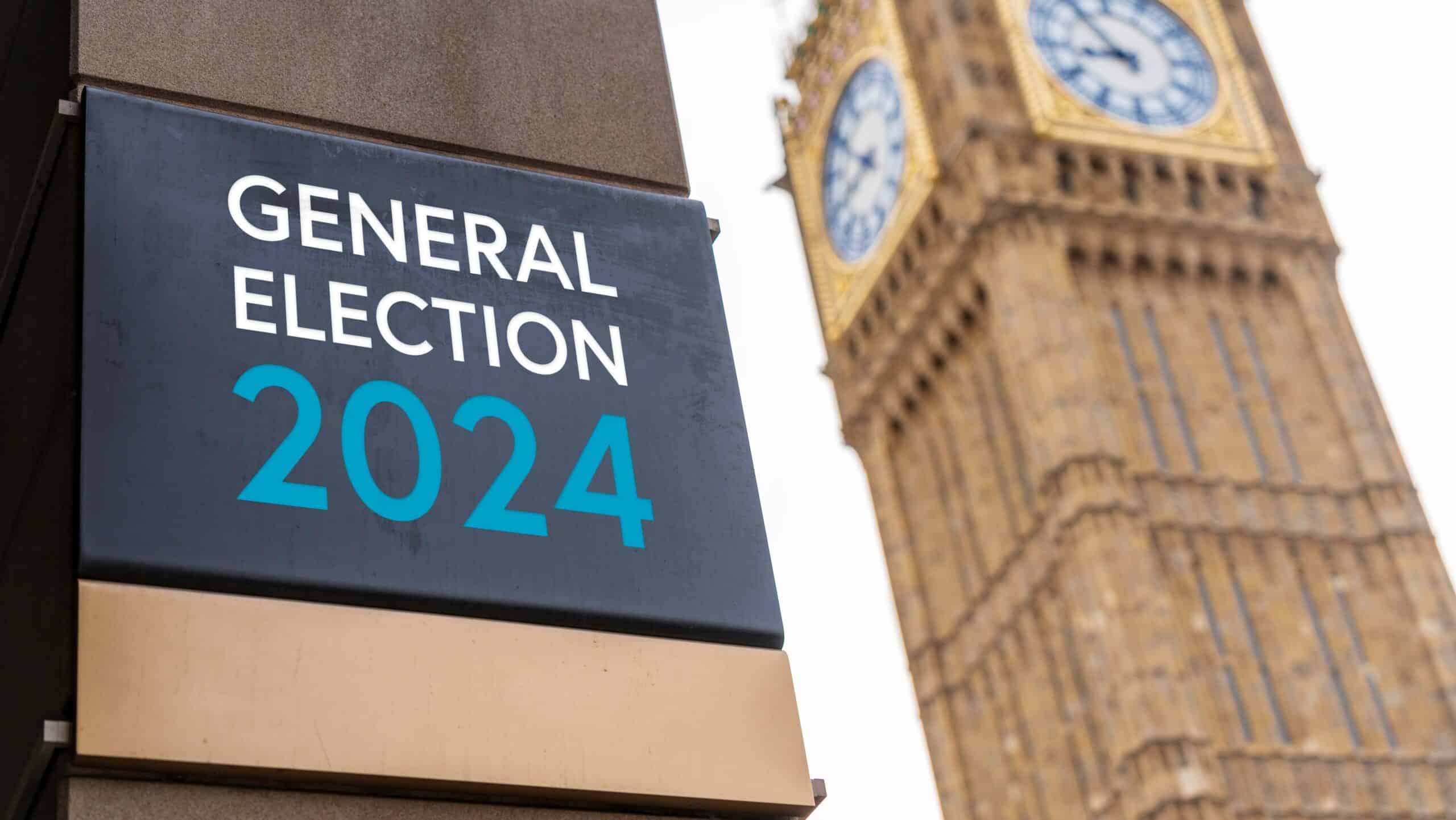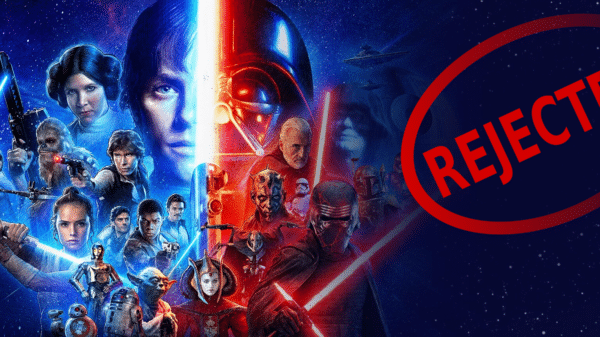Young people are most likely not to have made up their minds about how they will vote in the UK general election. So who will convince them?
With Labour almost universally predicted to win a significant majority, there may be little doubt about the overall election outcome, though there is still one group of voters who have yet to make up their minds. Recent polling by Ipsos suggests that while 43% of the general population planning to vote won’t change their minds, only 24% of 18- 25-year-olds are this secure. So why are young Brits so stuck on whose box to tick, and what are the parties doing to persuade them?
Barriers to entry
According to the Electoral Commission, young people and students are some of the least likely to be registered to vote. In 2022, just 60% of 18-19 year olds were registered to vote compared with 96% of over 65s.
The barriers to voting don’t end with registration. Boris Johnson’s government made it compulsory in 2022 to produce a photo ID in order to vote. The UK doesn’t issue national ID cards, so most people use a driver’s license or passport. Under this legislation, an over 60s bus pass is accepted as a valid form of ID, whilst a young person’s bus pass is not. As older people tend to vote Conservative more than younger people, some have seen this as a deliberate attempt to remove barriers for a key Conservative voter group while creating them for others.
The Electoral Commission flagged a potential risk of young people not voting because of this legislation, as well as disabled people and homeless people. Bonus fun fact: Boris Johnson forgot his own photo ID for the local elections and had to come back with it in order to vote.
An apolitical generation?
This lack of registration and voting intention has led to some concluding that Gen Z simply doesn’t care about politics. With the climate crisis looming in the big picture and everyday issues like the cost of living and the impossibility of getting on the property ladder, one could hardly blame us if this were the case. In my experience, though, and looking at the evidence of recent months, it simply isn’t.

Students and other young people have been at the forefront of the pro-Palestine movement here in the UK. Gen Z’s activism dates back even further than that – remember School Strikes for Climate Change? What other generation has proved themselves ready to direct political action whilst still under 18? If anything, the pressing global and local issues facing this generation are making political engagement more and more widespread.
Why, then, if there is a chance to vote on issues with a tangible impact on the lives of Gen Z, aren’t they heading to the polls, or able to decide who vote for if they do? The answer lies with the parties themselves, who have leant into the so-called ‘boomer election’ and don’t seem at all interested in going after Gen Z votes.
Do politicians ‘hate students’?
They certainly wouldn’t like us to think so. With 83% of 16-24-year-olds using TikTok compared with 2% of over-65s, the parties’ social media campaigns are clearly geared towards the younger vote. Popular opinion has it that the Liberal Democrats are winning on the memes, though Labour has the largest social media following across most platforms, with over 300k followers on Instagram compared to the Conservatives’ 208k. A quick glance at the comments of their pinned post, a satirical attack on Keir Starmer for ‘flip-flop’ policies, is enough to tell you why:
These posts are so cringe 🤢 scraping the bottom of the barrel as per.
@abbi.journal on Instagram
Labour is fairing little better, though, with doubtful comments about taxes rises plaguing their more serious posts. Even if the parties are not the ones providing the content, social media can harm their chances. Rishi Sunak’s visit to a pub in Devon ended up going viral after a young person asked him a question he didn’t have the answer to:
The policy that provoked this question from 16-year-old Henry Hassell was Sunak’s plan to reintroduce national service for all 18-year-olds, either in the military or in a community-based role. It is just such policies, announced in the same week that the Tories promised to maintain the pension ‘triple-lock’ that caps taxes for the over 65s, which are fuelling the claims that the party has given up on chasing the young undecided vote in favour of older, more reliable, demographics.
What Do Gen Z want?
It’s not difficult to get to the bottom of what issues would get out of bed (and down to the polling station) for. When the BBC spoke to young voters in Stoke-on-Trent recently, the top issues of concern were crumbling public services and a lack of opportunities in their hometown. On a wider scale, polling conducted by YouGov highlights the discrepancies between what 18-25-year-olds care about vs the rest of the population.
When asked to pick three most issues facing the country, the young voters chose the economy (58%), health (39%) and the climate crisis (25%). While the top two issues were the same for the general population, older age groups had immigration and asylum at number three (40%). Significantly, immigration was the most chosen issue among the over-65s, 6% higher than health at 58%.
Source: YouGov polling, 10th June
These figures suggest that whilst specific policies for older people like the pension triple-lock haven’t been so prevalent in recent days, the constant rhetoric about immigration represents a more subtle attempt to gain the ‘grey vote’.
Smaller parties up their game
So, who is trying to get young people’s votes? The Ipsos poll suggested younger voters were ‘fractionally’ more likely to vote for smaller parties like the Greens, Lib Dems or Reform UK. Carla Denyer, co-leader of the Green party, said in a Channel 4 News debate on Tuesday that she is firmly ‘pro-immigration’, believing it to be a ‘net good’ for the country. This stands in stark opposition to both the Conservatives, with their controversial Rwanda policy to process asylum seekers outside of the UK, and Labour who are also pledging to reduce immigration and increase border security.
The Green Party’s largest support base by far is among the 18-25 age group, so it’s no surprise that they have specific policies to appeal to these voters, like pledging to scrap tuition fees (a pledge Labour abandoned last year). Their top manifesto priority is housing, an issue on the minds of the generation who fear they will never be able to buy a house, followed by health, social care, and the economy. Broadly speaking, this aligns with the priorities of the surveyed group of 18-24 year olds.
Labour’s manifesto begins with similar priorities, with the addition of cutting immigration. The Conservatives have a specific ‘young people’ section in their manifesto, with pledges to widen the curriculum for 16-18-year-olds, introduce more apprenticeships and ban phones during school. But despite this, both parties appear to be losing votes to their smaller counterparts
Countdown to election day
So, with less than 2 weeks to go until the UK heads to the polls, will the big parties be able to sway on-the-fence Gen Z? Or will low voter turnout among young people make their inability to appeal to this group insignificant? One thing seems certain: whether they are not registering to vote, not sure who to vote for or voting for a small party, Gen Z doesn’t seem too keen on Labour or the Conservatives.
Whatever happens on 4th July, the parties would do well to remember that these voters aren’t going anywhere. Listening to them and securing their support will be vital in securing the political future of any party hoping to govern in the next 50 years.












